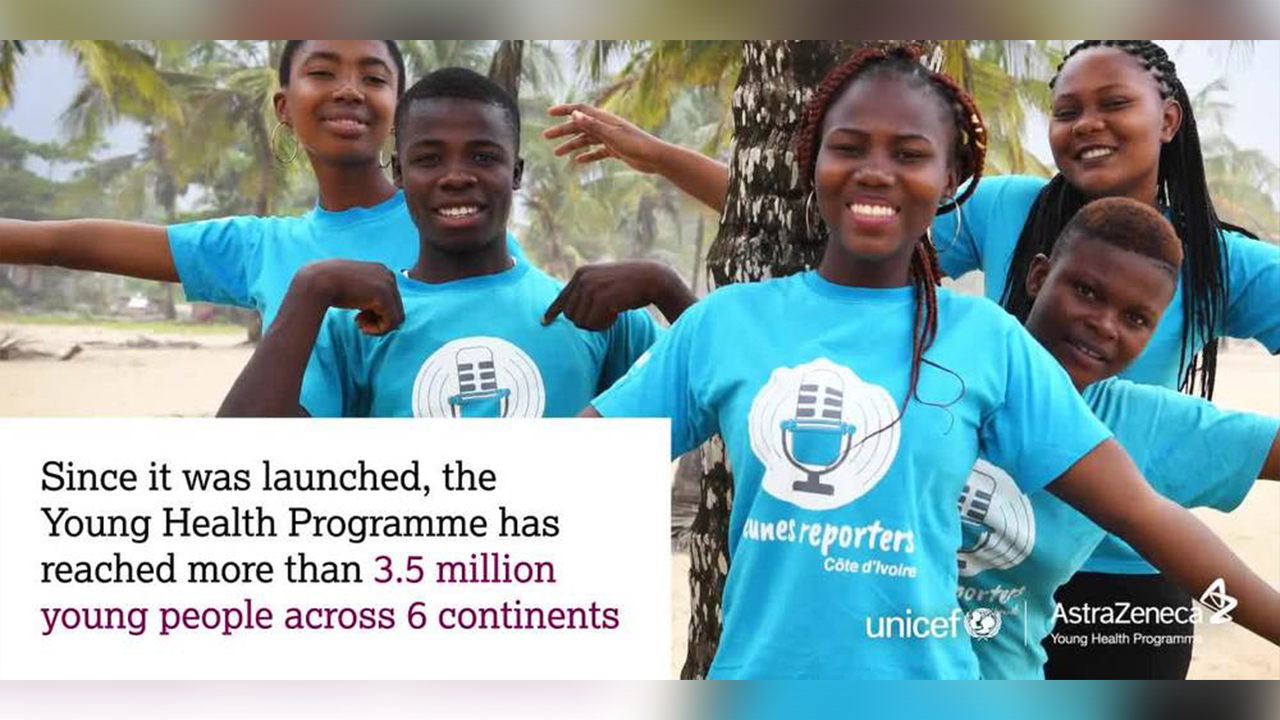AstraZeneca announced today that it will support UNICEF with a $12.5 million grant to support programming which will reach more than five million young people, train 1,000 youth advocates, and positively shape public policy around the world, over the next six years.
The announcement follows AstraZeneca’s decision in October 2019 to continue to fund its Young Health Programme to 2025 with an overall commitment of $35m (£28m).
The AstraZeneca Young Health Programme will work with UNICEF and other partners to raise awareness of the risks and effects of non-communicable diseases (NCDs) such as cardiovascular disease, preventable cancers and mental health conditions among young people and key decision-makers.
The World Health Organisation (WHO) identifies NCDs as the number one cause of death worldwide1 and found that 70% of premature deaths from NCDs can be linked back to behaviours that first appear in adolescence2. Similarly, the World Economic Forum (WEF) has predicted that NCDs will cost the worldwide economy more than $47 trillion in lost productivity and wages by 2030.
Pascal Soriot, Chief Executive Officer, said: “We believe in the power of young people to change the trajectory of the staggering burden of disease we face today, all over the world. Improving the health outcomes of future generations is a critical part of developing strong and stable healthcare systems, which in turn support sustainable markets and the economic prosperity of nations.”
Since its launch in 2010, the Young Health Programme has reached more than 3.5 million young people across six continents and trained more than 50,000 peer educators.
Gary Stahl, Director, UNICEF Private Fundraising and Partnerships, said: “The health and futures of young people must not be compromised by unhealthy lifestyles and behaviours. I am happy that UNICEF is joining a coalition of committed partners with the support of AstraZeneca to bring attention to NCDs which are now the world’s biggest killers. The burden of these diseases is closely linked to socio-economic factors and more work needs to be done on delivering the right messages through the right channels in countries to encourage healthy behaviours.”
The other allies in the Young Health Programme are founding partner, and community-based programming lead, Plan International, youth engagement and development lead One Young World, and more than 30 other non-profit partners around the world, all working to improve health outcomes for young people through thoughtful programming, research and youth engagement activities.

 Since its launch in 2010, the Young Health Programme has reached more than 3.5 million young people across six continents and trained more than 50,000 peer educators.
Since its launch in 2010, the Young Health Programme has reached more than 3.5 million young people across six continents and trained more than 50,000 peer educators.








.jpeg)




.jpg)






.jpeg)









.jpg)


